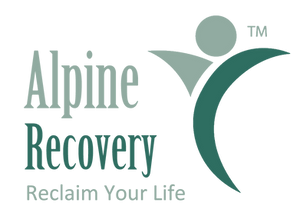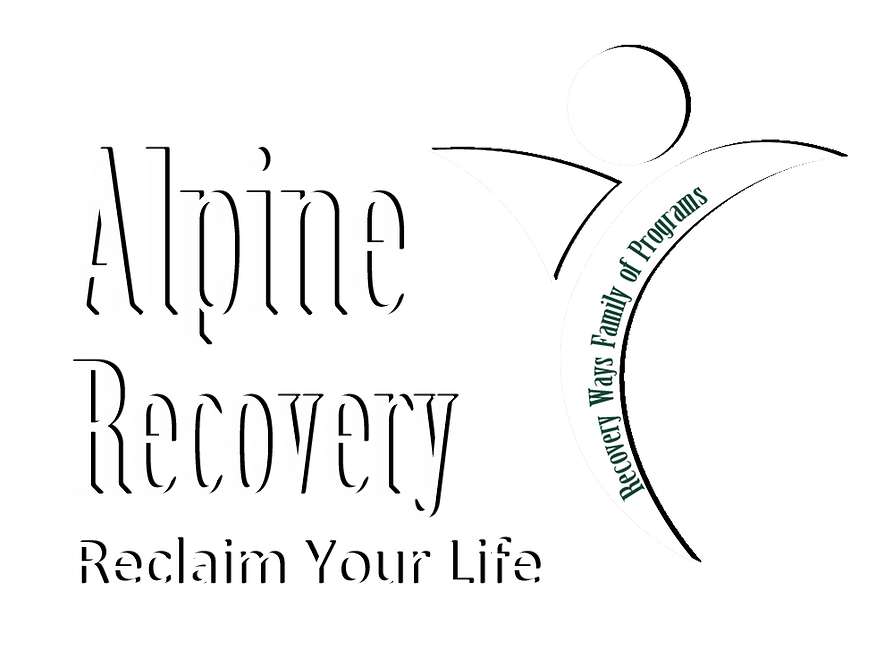Finding Substance Use Treatment in Everett WA
Substance use disorder (SUD) impacts thousands of individuals and families across Everett, Washington, leaving a profound effect on the community. Whether it’s the alarming rise in opioid abuse, the long-standing challenges of alcohol dependency, or struggles with other substances, SUD doesn’t just affect those battling addiction—it ripples through families, workplaces, and neighborhoods. Navigating substance use treatment in Everett WA can feel overwhelming, especially when faced with barriers like stigma, financial challenges, or the sheer abundance of choices available. It’s not uncommon to feel uncertain about where to start or which resources will truly make a difference. This blog is here to provide clarity and support. You’ll gain insights into what SUD is, how it develops, and why it’s important to approach it as a complex health condition rather than a moral failing. Additionally, we’ll highlight the resources available in Everett, from local clinics and recovery programs to support groups and financial aid options. We’ll also offer guidance on how to identify the most effective treatment options for yourself or a loved one, considering factors like the severity of the disorder, personal circumstances, and long-term goals. Recovery is a journey, and no one should have to face it alone. Together, let’s explore the path to healing, hope, and a brighter future for individuals, families, and the community at large.
What Is Substance Use Disorder?
Substance Use Disorder (SUD) is a complex and chronic condition that occurs when the recurrent use of drugs or alcohol begins to interfere with a person’s physical and mental health, relationships, and ability to manage daily responsibilities. It can range from mild to severe, with severe cases often classified as addiction. SUD is frequently accompanied by both physical dependence, where the body exhibits withdrawal symptoms in the absence of the substance, and psychological dependence, marked by intense cravings and compulsive behaviors. This condition not only affects the individual but can also have far-reaching effects on their family, workplace, and community, making effective substance use treatment in Everett WA and support systems crucial.
Common Substances Abused in Everett, WA
Everett has seen a notable rise in substance abuse cases, particularly involving opioids, methamphetamines, alcohol, and prescription medications. The opioid epidemic remains a significant challenge in Snohomish County, with alarming overdose statistics emphasizing the urgent need for effective and accessible substance use treatment in Everett WA. Communities are grappling with the devastating impact of addiction, as families, healthcare providers, and local authorities work together to address this growing crisis. Expanded recovery programs, education initiatives, and community support services are more critical than ever to combat the far-reaching effects of substance abuse in the region.
Signs and Symptoms of SUD
Recognizing SUD early is crucial for effective recovery. Here are common signs to look out for:
- Physical symptoms: Changes in appetite, such as eating significantly more or less than usual, disrupted sleep patterns including insomnia or excessive sleeping, or withdrawal effects like nausea, headaches, trembling, or heightened anxiety. These symptoms can vary in intensity depending on the individual and the underlying cause.
- Behavioral shifts: Noticeable changes such as increased secrecy, avoiding open communication, withdrawing from usual social circles, or neglecting responsibilities at work, school, or home. These shifts may indicate struggles or hidden challenges.
- Mental health effects: Substance use disorder (SUD) often goes hand-in-hand with mental health challenges, including mood swings, depression, or anxiety disorders. These mental health conditions can be both a contributing factor to and a consequence of substance use, creating a cycle that can be difficult to break. Individuals may experience overwhelming emotional highs and lows, persistent feelings of sadness, or excessive worry and fear, which can significantly impact their quality of life and ability to function.
Understanding these warning signs can be the first step toward seeking professional help.
The Stigma Surrounding SUD
One of the greatest barriers people face is societal stigma, which often stems from widespread misperceptions about addiction. Many people view addiction as a moral failing or a lack of willpower, rather than understanding it as a complex health condition. These misconceptions can discourage individuals from seeking the help they need, leaving them to struggle in silence and delaying critical recovery efforts. This stigma not only impacts those battling addiction but also creates challenges for their families and loved ones, making it harder to foster a supportive environment for healing.
Financial Barriers and Insurance Coverage
Many families worry about the cost of substance use treatment in Everett WA, which can often feel overwhelming. While some programs accept insurance, others might require significant out-of-pocket costs, making access to care a challenge for many. Fortunately, there are resources available to help. Government-funded treatment options, as well as local nonprofits in Everett, work to provide affordable or even free services to those who qualify. These programs are designed to reduce the financial burden and ensure that individuals and families can access the care they need without added stress. Reaching out to these organizations can be a vital first step towards finding the support you need.
Finding the Right Program
The wide range of substance use treatment in Everett WA can make it difficult to choose the best option, as each program offers unique benefits tailored to different needs. Taking the time to research and evaluate these programs can help individuals select a treatment plan that aligns with their personal circumstances and goals for recovery.
Residential vs. Outpatient Treatment
- Residential treatment: Provides a highly structured environment with 24/7 care and support, making it an ideal option for individuals facing severe addiction. This type of treatment allows patients to fully focus on recovery without the distractions or triggers of daily life. It typically includes therapy, medical supervision, and a supportive community to guide individuals through the healing process.
- Outpatient treatment: This option allows individuals to live at home while attending scheduled treatment sessions, making it a great choice for those who need flexibility to balance their daily responsibilities such as work, school, or family commitments. It provides access to professional care and support without requiring a full-time stay at a treatment facility, helping individuals integrate recovery efforts into their everyday lives.
Both options come with their own advantages, depending on the severity of the addiction and individual circumstances.

Specialized Treatment Options
Everett offers tailored programs for:
- Veterans: Providing specialized support through trauma-informed care, addressing the unique physical, mental, and emotional challenges faced by former service members, including PTSD, reintegration into civilian life, and access to resources.
- Adolescents: Offering specialized therapies designed to tackle teen-specific challenges such as coping with peer pressure, managing academic stress, navigating social relationships, and addressing trauma. These sessions aim to build resilience, improve emotional well-being, and foster healthy coping mechanisms during this critical stage of development.
Assess Personal Needs
When selecting a program, it’s important to take several factors into account to ensure the best chance of success. Consider the severity of the addiction, as this will determine whether an intensive inpatient program or a more flexible outpatient approach is needed. Assess any co-occurring mental health conditions, such as anxiety or depression, that may require integrated treatment to address both issues simultaneously. Personal goals are also key—whether the individual is seeking to rebuild relationships, return to work, or develop healthier coping mechanisms, the program should support these aspirations. Additionally, think about the individual’s overall lifestyle, including family commitments, work responsibilities, and financial situation. Choosing a program that aligns with the person’s unique needs and offers comprehensive support can make a significant difference in achieving long-term recovery and maintaining a healthier, more fulfilling life.
Key Questions to Ask
- Is the program accredited by recognized organizations, such as government agencies or reputable industry bodies, to ensure its quality and credibility?
- Does it provide both medical care and therapeutic support, ensuring a comprehensive approach to addressing health and well-being?
- What aftercare services are provided to ensure ongoing support and assistance once the initial service or treatment is completed?
Resources to Find Accredited Programs
Use resources like the SAMHSA Treatment Locator or local directories to find trusted and effective treatment centers near you. These tools provide comprehensive information on facilities offering a wide range of services, including counseling, therapy, and both inpatient and outpatient care. Many of these directories also offer filters to help you search for specific needs, such as programs for adolescents, veterans, or individuals with co-occurring disorders. By using these tools, you can access detailed descriptions, contact information, and even reviews of treatment centers, helping you or your loved ones find the right support quickly, confidently, and with peace of mind.
Local Resources and Support Systems
Everett residents have access to an array of resources to support recovery, including:
- Government-Funded Programs: The Snohomish County Human Services Department provides various grants and financial support options to help individuals access treatment. These programs are designed to make essential services more affordable and accessible, ensuring that financial barriers don’t prevent people from getting the help they need.
- Nonprofits: Organizations like the Snohomish Overdose Prevention Group play a crucial role in the community by offering outreach programs, educational resources, and support services. They work to raise awareness about overdose prevention and provide assistance to individuals and families affected by substance abuse.
- Support Groups: Groups like Alcoholics Anonymous (AA) or Narcotics Anonymous (NA) provide a supportive community for individuals recovering from addiction. These groups foster a sense of belonging by connecting people with similar experiences and creating a space to share recovery journeys. Through regular meetings, structured programs, and peer encouragement, they help members stay accountable and motivated throughout their recovery process.
Setting Realistic Expectations
Recovery isn’t linear, and setbacks are a natural part of the process. It’s important to recognize that progress can take time and may not always follow a straight path. Working with professionals, such as therapists or specialists, can help you set realistic goals and benchmarks tailored to your unique needs. With the right guidance and support, you can stay focused on long-term progress, even when challenges arise.
The Role of Family Support
Families play a crucial role in the recovery process, offering emotional support, understanding, and a sense of stability that can make all the difference during challenging times. Their encouragement and presence can help loved ones feel less isolated and more motivated to move forward. Consider attending family therapy sessions or support groups, as these can provide valuable insights into your loved one’s needs, the challenges they may be facing, and how you can actively support their healing journey. These sessions allow family members to learn healthy coping mechanisms, understand the nature of recovery, and gain tools to handle difficult situations in productive ways. They also help improve communication, address unresolved issues, and foster a stronger, more supportive environment for everyone involved. By working together, families can create a foundation of trust and care, offering their loved one the best chance for long-term recovery and resilience.
Coping Strategies
- For Individuals in Recovery: Practice self-compassion by being kind to yourself and acknowledging your progress, even in small steps. Incorporate mindfulness into your daily routine to stay present and manage stress effectively. Stay committed to therapy or support groups, as consistent engagement can provide valuable tools and a strong support system throughout your recovery journey.
- For Families: Take time to educate yourself about Substance Use Disorder (SUD) to better understand what your loved one is going through. Establish healthy boundaries to protect your own emotional well-being while still offering support. Don’t hesitate to seek out peer support groups or counseling services, as they can provide valuable guidance and help you navigate this challenging journey.
Conclusion
Navigating substance use treatment in Everett, WA, may seem daunting, but it’s a path filled with opportunities for healing and hope. Substance Use Disorder (SUD) affects individuals and families in profound ways, but recovery is possible with the right support and resources. By gaining a deeper understanding of SUD, exploring the wide range of treatment options available—such as inpatient and outpatient care, counseling, and support groups—and connecting with local resources, you or your loved one can take meaningful steps toward a healthier, more fulfilling life. Seeking help is not a sign of weakness—it’s a testament to your courage and determination to overcome challenges. Begin your recovery journey today by reaching out to our professional staff by calling 1 (360) 658-1388 or click Alpine Recovery. Remember, recovery is a process, and every small step forward brings you closer to a brighter future. You are not alone.



